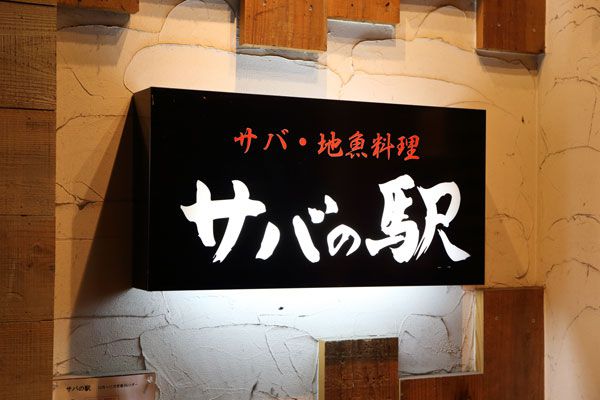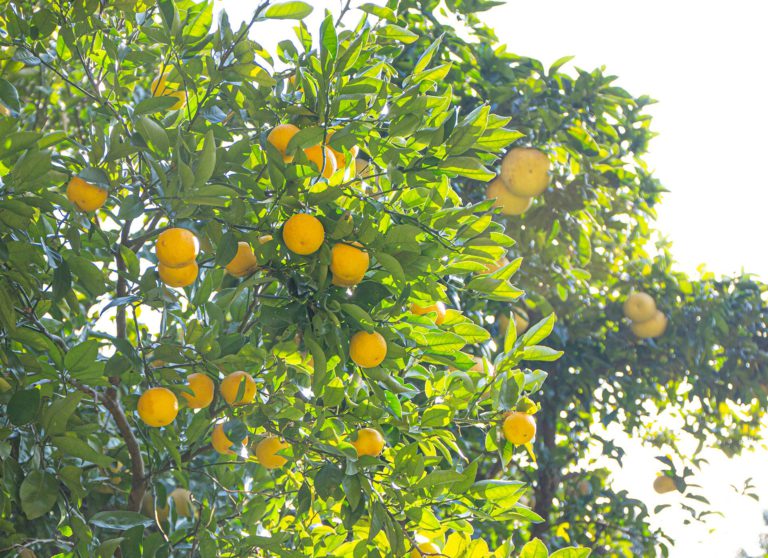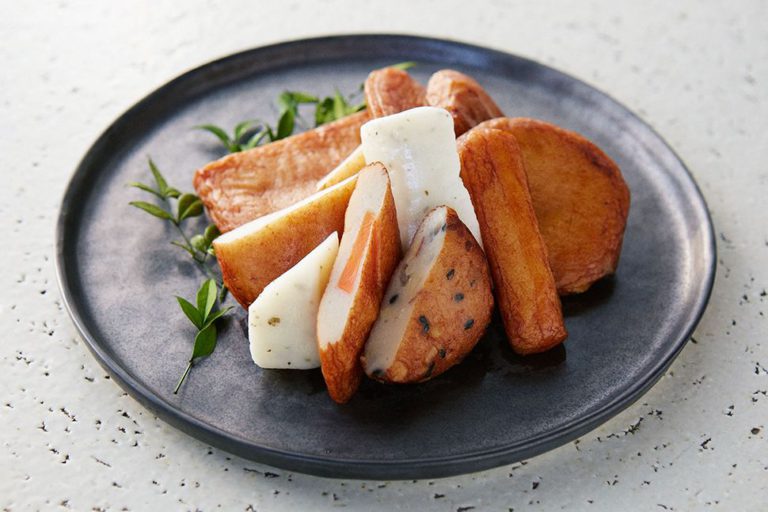The Mackerel Food Culture of the Port Town of Hachinohe
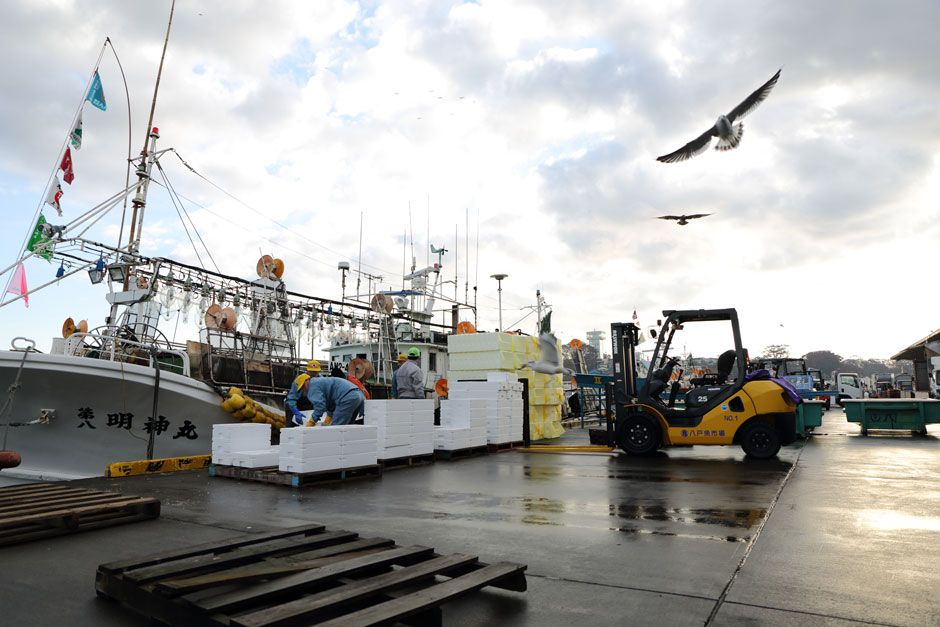
Aomori prefecture is endowed with a rich variety of marine products throughout the year, ranging from fish such as tuna, mackerel and sea bream, to squid, giant Pacific octopus, scallops, sea urchin, and other kinds of seafood. The firm meat of fish that have migrated through the cold waters of the north has an excellent flavor. As the residents have an established culture of eating seasonal fish, here you can discover unique fish dishes that you won’t find anywhere else in Japan.
A rich variety of fish in the waters of Aomori
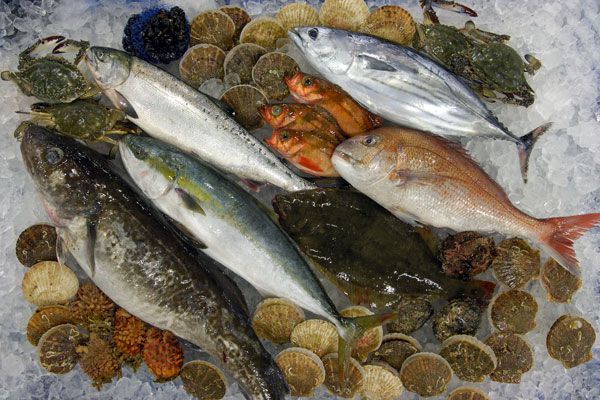
It’s 5:00 in the morning and the day’s auction is about to begin at Aomori City’s central wholesale market, the largest fish market in Aomori prefecture.
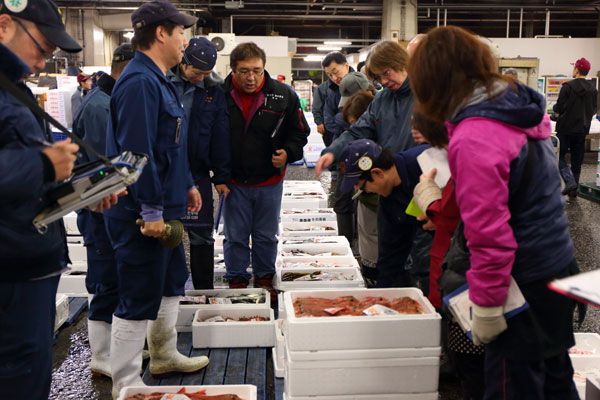
“Aomori has the largest variety of fish in Japan, I think” says Sadanori Oishi of Aomori Chuo Suisan, who guided us through the market. During our walk we were able to see an amazing variety of marine products centering on fish caught off Aomori, from Okhotsk atka mackerel, monkfish, blackthroat seaperch, and even shark. We also learned that Aomori has lakes where freshwater fish such as kokanee salmon, eel, icefish, and wakasagi (Japanese smelt) can be caught.
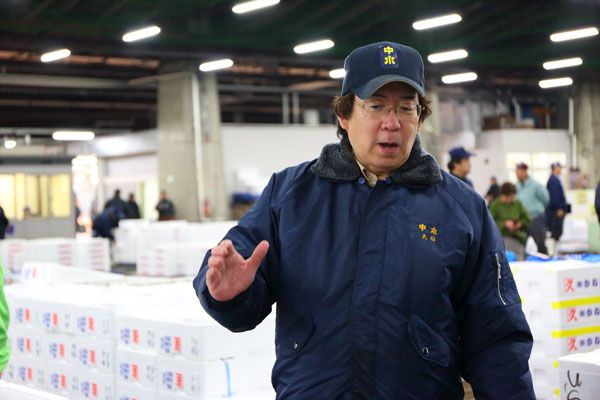
The residents of Aomori prefecture, a treasure house of fish, also know how to best prepare each kind of fish.
According to Oishi, “Most people have this image of monkfish as hot pot dish, but here we often eat monkfish by boiling the meat and liver, and seasoning this with miso. We eat shark by simmering it in a soy sauce mixture, deep-frying it, or even serving it raw. The people of Aomori are big eaters, so they prefer big fish (laughter).” He says that sea bream and flounder catches will increase as it gets colder. In this way, the people of Aomori enjoy the changing seasons through their day-to-day consumption of fish.
“Hachinohe maeoki mackerel” called the “otoro of mackerel”
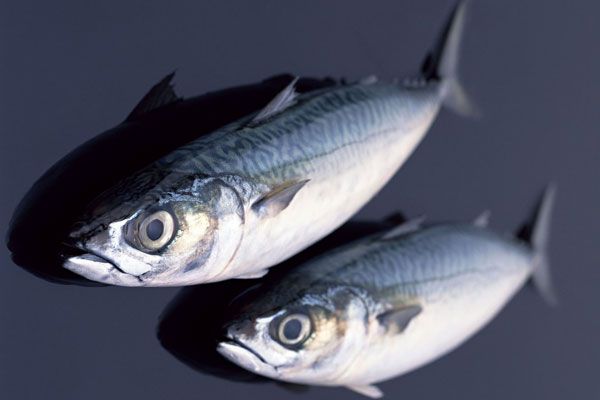
Hachinohe, a city on the Pacific coast in southeast Aomori, is where you can find what has been branded as “Hachinohe maeoki mackerel,” a superb mackerel with fatty meat similar to otoro, the deliciously marbled, fatty belly meat of tuna.
Hachinohe maeoki mackerel is landed at the Port of Hachinohe. Located at a latitude of 40°30′ N, among the major landing ports for mackerel in Japan this is the northernmost port on Honshu. Only mackerel caught in the waters near Japan off the Sanriku coast and further north, and landed at the Port of Hachinohe at their tastiest with a fat content of around 15 percent or more, are recognized as Hachi-nohe maeoki mackerel.
Among them, those that weigh 550 grams or more are ranked the highest and are called “silver mackerel,” a very fatty, high-quality premium brand.
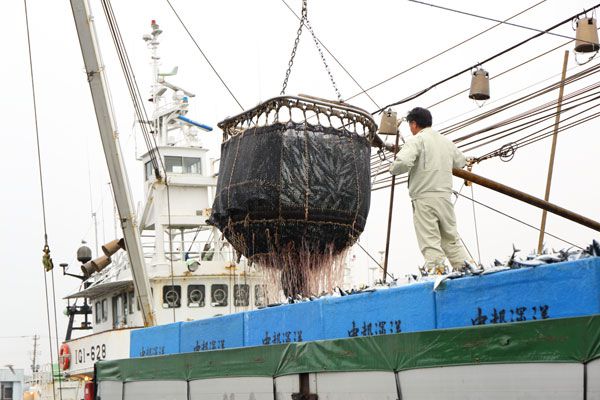
Mackerel was just coming in when we visited the Port of Hachinohe. “We caught about 2,000 tons today,” a fisherman told us while loading the plump mackerel onto a truck. Numerous mackerel and squid processing plants are located within several minutes walking distance from the port.
We visited Office Benkei, a company that processes marine products. Here, large quantities of landed mackerel are quickly loaded into a sorting machine, where they are sorted by size for processing. The large fish are shipped out as silver mackerel or pickled mackerel, and the small ones are canned.
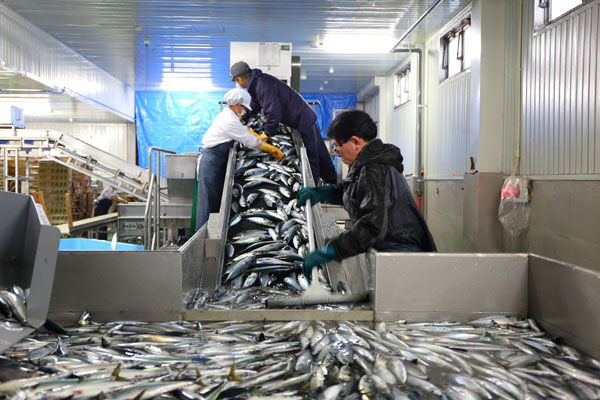
This town and mackerel have a long history. The annual haul of mackerel in Hachinohe around the 1970s was 400,000 tons. Since mackerel spoil easily, compared to other regions, Hachinohe was quick to engage in processing the fish as “pickled mackerel” or “canned mackerel” in order to distribute this abundant catch. In doing so, Hachinohe went beyond just landing fish, to also developing a processing industry.
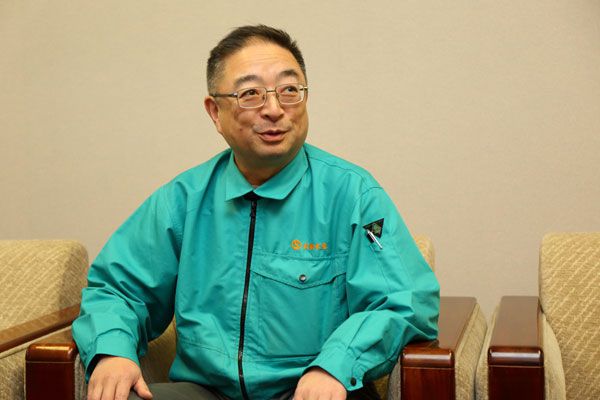
On the other hand, with such accessibility to mackerel, very few of the locals took note of its value, with it presumed that “mackerel is not something you purchase, but get for free.” But as mackerel brands such as “Seki mackerel” and “Kinka mackerel” began emerging from other parts of Japan, in order to keep Hachinohe mackerel from losing to the other brands, the Hachinohe Maeoki Mackerel Brand Promotion Council was launched in 2008.
“Mackerel is a migratory fish that passes through Hachinohe when swimming south from Hokkaido to Choshi. Every year, from September to December, mackerel that have a high content of fat from swimming in cold waters, reach the inshore waters of Hachinohe,” says Toshihiko Takewa, the council’s chairman.
“Saba-no-Eki” raised Hachinohe’s fame for mackerel
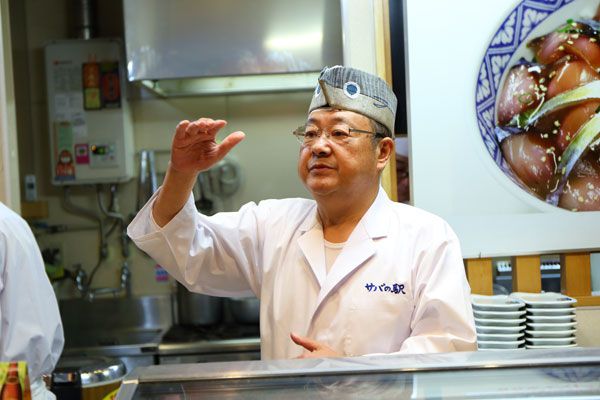
Hearing that there was a central figure behind raising the image of mackerel from just an ordinary fish of Hachinohe into the famed specialty of the town, we headed toward a restaurant in the center of town that specializes in mackerel. This key person was Hiroshi Sawakami, the proprietor of “Saba-no-Eki” (“mackerel station”).
Realizing that Hachinohe’s mackerel is an attractive product, Sawakami was one of the members launching the mackerel brand promotion council. He himself opened this establishment specializing in mackerel dishes in 2009, and worked to make Hachinohe mackerel more widely known. But he says that he ran into difficulties at first because this was such an ordinary, inexpensive fish in this area.
“I didn’t have many customers at first, and people kept on telling me to give up. But it gradually became popular as customers came from outside the prefecture. When people outside have a taste of what is considered regular fare among the locals, they are astonished by how good it is.”
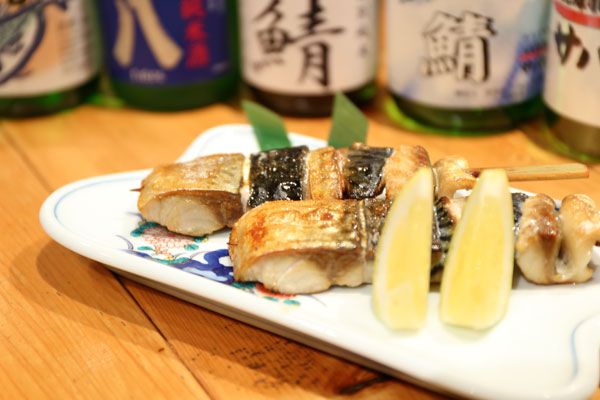
The menu lists about 30 types of mackerel dishes that can only be eaten here. These include grilled mackerel on a skewer, which Sawakami recommends as the best way to enjoy Hachinohe maeoki mackerel, and raw mackerel quick-frozen at minus 50 degrees Celsius right after being caught.
A set of five types of sake that go with mackerel is also popular. We tried the recommended skewered mackerel. The fat sizzling out of the fragrant grilled meat combined with the rich flavor of mackerel filled our mouths. So this is how a humble mackerel takes center stage!
Even now, Sawakami continues to pursue ways to bring out the delicious flavor of mackerel. He is also developing a new method of processing mackerel to better retain its freshness. He takes pride in the fact that the “taste of Hachinohe maeoki mackerel even stands up to Tsugaru Strait tuna.”
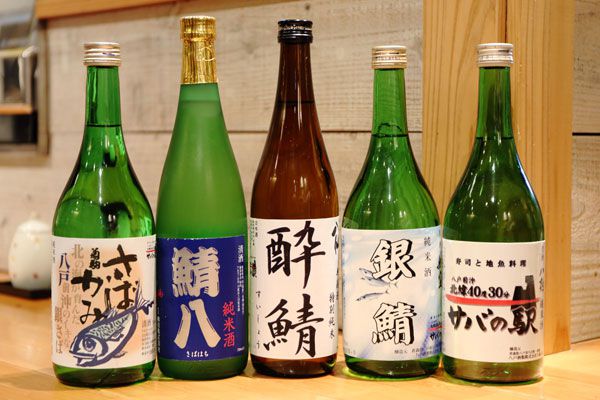
Toshihiko Takewa, the council chairman, also praises the accomplishments of Saba-no-Eki. “With the popularity of Saba-no-Eki, other eateries in the community have also started providing dishes made from Hachinohe maeoki mackerel. The consciousness of the residents has also changed. They are now able to say, ‘Eat mackerel when you’re in Hachinohe.’ We want people not only from Japan, but from overseas as well to come to Hachinohe and enjoy our Hachinohe maeoki mackerel.”
In Hachinohe, Aomori prefecture, a treasure house of fish, the efforts of the local citizens helped turn mackerel from an accessible marine resource into a fascinating tourism resource. Why not visit Hachinohe and experience the seasonal riches of the sea?

